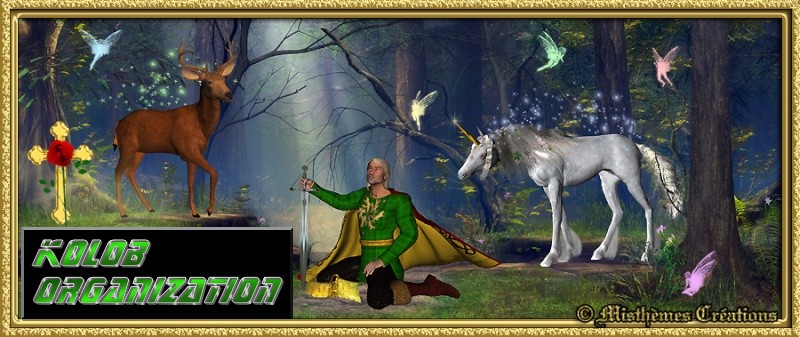Commandeur Adama
Magister Ordo Kolob - Admin
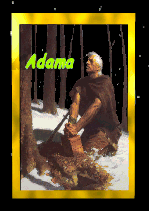
Nombre de messages : 8905
Age : 60
Localisation : Pays de Néphi - Mormon forest
Date d'inscription : 16/02/2007
Chevalier de Kolob - Vers la Sagesse
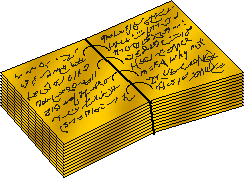 A reçu la Lumière: 180 A reçu la Lumière: 180
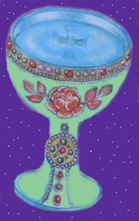 En quête du Vase Précieux et Elu: En quête du Vase Précieux et Elu:
    (150/200) (150/200)
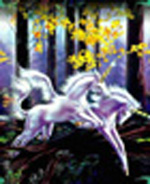 A la recherche du couple de Licornes du Jardin d'Eden: A la recherche du couple de Licornes du Jardin d'Eden:
    (7/700) (7/700)
 |  Sujet: Masons among us Sujet: Masons among us  Mar 4 Mar - 2:09 Mar 4 Mar - 2:09 | |
| 
March 11, 2004 - MSNBC
In the wake of an accidental killing, a historian explains who the Freemasons are, what they do and why conspiracy theorists seem drawn toward them.
Induction ceremonies aren't supposed to go this way. William James, 47, was killed shot in the face’ during his induction at a Masonic lodge in Patchogue, N.Y., Monday. The shooter, a 76-year-old World War II veteran named Albert Eid, was supposed to fire a .22-caliber handgun with blanks at the pledge, but instead grabbed the .32-caliber gun with live rounds he was carrying in his other pocket.
A freak accident, claim the Masons (James' induction ritual was also to have involved large rat traps, a six-foot replica guillotine and a plank he would have been forced to walk.) But instead of everything proceeding cloaked in the usual secrecy, the Patchogue's Southside Masonic Lodge No. 493 flung its umbrella organization, the Freemasons, into a very unsecret national spotlight.
The modern incarnation of Freemasons dates back to 1717 with the founding of the first Grand Lodge of England. The organization is rooted in the guilds of medieval stonemasons who would pass their trade secrets on to each other through handshakes and passwords that served as proof of their skill level. Freemasons, frat boys of the post-Bacc set, played a visible role in the American Revolution, the Constitutional Congress and the signing of the Declaration of Independence. Ben Franklin, George Washington and Andrew Jackson were all Masons.
So were Theodore Roosevelt, Harry Truman and Duke Ellington. Al Gore is a Mason. The symbols on U.S. currency are Masonic allusions - that floating eyeball-pyramid thing, for example, symbolizes Hiram Abiff, the builder of King Solomon's temple.
It is perhaps little wonder that conspiracy theorists and satirists are drawn to the secret society like bears to honey. "The Simpsons" famously spoofed the fraternal order in its Stonecutters episode, featuring a song that included the lyrics: "Who keeps the metric system down?/We do! We do!/Who leaves Atlantis off the maps? Who keeps the Martians under wraps?/We do! We do!"
But is the group that brought the modern world fez-doffing Shriners really something to fear, or even scorn? Steven C. Bullock, author of "Revolutionary Brotherhood" (University of North Carolina Press 1996) has found historical significance in the group, but little that points to anything sinister.
Bullock, a professor at Worcester Polytechnic Institute in Massachusetts, recently spoke with Newsweek's Brian Braiker about Freemasonry's role in forming the American democratic system, what Masonry is about today and whether conspiracy theorists might’ just might’ on to something.
Excerpts:
Who are the Freemasons?
They're a fraternal society. The traditional Masonry is by and large about men; it uses secret rituals and meetings that are closed to outsiders to teach morality, encourage charity, learning to a certain extent and certainly to encourage fellowship.
So why the secrecy?
It comes out of craftsmen organizations [with] the roots in the 1600s and early 1700s, but there are these texts and these traditions get passed along. You didn't want outsiders in there because you were doing things that were supposed to be secret: Part of it is setting wages, setting prices and things. You want to have a chance to discipline people who were doing bad things that you don't want to get out. And then later on, the secrecy is part of its appeal to a great extent. The point of the rituals is they are a transformation from one status to another. If this is something which can come in and look at, it's not going to have the same impact on a person who is going through it.
A lot of our presidents have been Freemasons, all the signers of the Declaration of Independence -
Yeah, there's a lot of that talk. There' s a lot of conspiracy theories. A lot of that is really overblown. Compared to the proportion of Masons in the country, they are very disproportionately represented in presidencies and all those Revolutionary meetings.
So why is that?
I think because Masonry tended to attract people who were relatively well-to-do, who were more cosmopolitan than average, who were higher status than others. That began to change maybe since World War II or the 1930s with greater openness. More people had been allowed to join. In the eighteenth century and nineteenth century, they were really a high powered group. To a great extent that there are these theories is that they were pretty powerful people. Then in the 30s really does it really challenge this fraternal model. The Depression makes people less interested in these voluntary association. Masonry is really the only one that comes out of World War II with any kind of success. The Oddfellows still exist, but they're falling away very rapidly. The Masons actually continued to grow into the 1960s.
Membership rates in civic groups have been declining across the boards for a while now. Has that been the case for the Freemasons as well? Yeah, it's been a huge decline for the Freemasons as well. I think there were about 4 millions Masons in the 1960s nationwide; now it's like 1.8 million. So in just 40 years or so, it's been cut in half.
What kind of feedback have you gotten from them about your book?
They've been very pleased. I was pretty nervous about that. They’Äôre sort of like an ethnic group that feels a little embattled. They're very nervous about somebody coming in and not taking them very seriously and embarrassing them.
Well, in light of what happened on Monday, why on earth should they be taken seriously?
As a historian, I think the point is they have this incredible history going back nearly 300 years and attracting really some of the most important people in American history from Ben Franklin to George Washington to Andrew Jackson to Theodore Roosevelt to Harry Truman to Duke Ellington to Jesse Jackson. An amazing number of people have found that this is something significant for them.
Just going through that list names, it's no wonder that some people jump to -
There's sort of a fear there, yeah. I can see the secrecy business is hard for us to understand. It's been hard for people for 300 years. In a way, it would have been better for me as a historian if they were trying to take over the world. It would have made a better story.
As an outsider, do you think there's a chunk of the story you might have missed?
I don't really think so. I think some Masons think there is. I've never had the experience of going through the ritual itself, but it's amazing how much stuff is available. The rituals which are meant to be secret were easily available even in early America.
Rituals such as?
The 'First Degree' is you are dressed in an odd sort of way and you are blindfolded and a Mason knocks on the door for you’ you're outside, so symbolically you are not part of the group. You come in, you are made to repeat some sort of obligation [along the lines of] - I promise not to repeat the secrets of Masonry. I will be a good brother; I'll do the right things. I think this is still true, but they used to take a compass - the kind you use for drawing circles - and the point is pressed against your breast to suggest that this is really serious. It's designed to make you feel ill at ease, out of sorts, to feel disoriented. And then at a certain moment they ask, "What do you desire?" You say "More light." Very symbolic. Then your blindfold is opened up, you see the lodge and your brothers for the first time.
Can you talk a little about the philanthropy of Masons, like the Shriners Hospitals? And what's with the fez?
A lot of money goes through Masonry and goes out. Every year, more than $80 million a year in charitable giving. There's a fair amount of volunteering going on as well. There's a whole series of Masonic organizations. There's the lodge itself, which people often call the Blue Lodge - that's the basic three degrees. Then there are further degrees you can take.
Shriners are a group within Masonry. It's the most popular one; the one we know the most about. They're a late nineteenth century group founded with the dual purpose of just the enjoyment of hanging around and doing fun things with other men. And the other part of it is the charity. They push that very far too with the whole network of hospitals. [They're] sometimes called the Playground of Masonry wearing fezzes and things. I think you have a little more silliness involved with them.
What was the role that the Masons played in the Revolution?
They didn't take on the Revolution as their pet cause. Masons were divided on the Revolution as they do in all things. Benedict Arnold was actually a Mason.
Yet a lot of the men you named were big players in the Revolution. A lot these people become the Founding Fathers. [Masonry] spreads to a great extent through the Continental Army, the official army of the Revolution. I think Masonry comes out of the Revolution with this reputation of being this huge part of the Revolution. They come to symbolize the ideas of the Revolution, that we are a country that is based upon equality; that no one is better than anyone else. It doesn't matter what religious group you belong to, it doesn't matter where you come from, it doesn't matter what political affiliation you have, you're still a brother.
And then after the Revolution, they seem everywhere in politics. There are some hints that sometimes in the nineteenth century that this was sort of used as people knew you as a Mason and therefore you're more likely to be elected. Some of these big states in the years after the revolution where there wasn't this culture of a statehouse yet, Masonry becomes a way of building those ties and figuring out how you make connections with the state. A huge number of the early governors were Masons because you're building ties at a time when it's very difficult to make connections if it's more than a day or two away by horse.
They get so big that even an anti-Masonic political party emerges in the 1830s. After the Revolution it expands enormously. Masons became sort of symbolic figures of the Revolution and are called upon to dedicate all these public buildings. The cornerstone of the U.S. Capitol is dedicated with a Masonic ceremony. Virtually every small town in America has a lodge by the 1820s. Masonry becomes a way for people to establish yourself, to do business, to make connectionswith people. So on the one hand Masonry after the Revolution becomes a way of identifying yourself with the values of the Revolution, on the other hand it's something you can do for your own benefit. In the 1820s those things are really in tension and it's all set off by a guy in upstate New York, William Morgan, who tries to publish a book with all the rituals in them.
The Masons around there are driven to distraction by it and a number of them get together and kidnap him, take him to Fort Niagara and, who knows, he's never seen again. I tend to believe he was murdered. It's a different world now. It is, although you kind of wonder when you see this stuff at this lodge here. It's sad. The [shooter] is in his seventies - a World War II vet - because the average age is really very high these days. It's up in the 60s I think in every state. Reference : Crystalink | |
|
